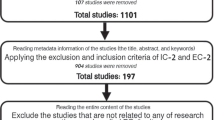Abstract
This paper reports on participation within on-line forums. The focus is on asynchronous text based discussion within small groups of learners following a learning event or course. Participation is a key issue within such forums and research was carried out into adult learners' experiences within three case studies. Learners were positive about the forums in which they took part but participation was less than many would have liked. This paper describes the constraints on participation and outlines three patterns of participation—non participation, quiet participation and communicative participation. Discussion focuses on the communicative leaner—someone who participates regularly in forums and in ways which are broadly welcomed by others in the group. A profile of the communicative learner is developed in which the importance of fluency, coherence and informality is highlighted. The paper summarises the issues associated with on-line participation and their implications for supporting communicative participation.
Similar content being viewed by others
References
Bonamy, J. and Hauglusaine-Charlier, B. (1995) Supporting professional learning: beyond technological support, Journal of Computer Assisted Learning, 11, 4, 196-202.
Brown, G. and Yule, G. (1983) Discourse Analysis. Cambridge University Press, Cambridge.
Collis, B. (1996) Tele-learning in a Digital World: The Future of Distance Learning. International Thomson Computer Press, London.
Durham, M. (1990) Computer conferencing, students' rhetorical stance and the demands of academic discourse.Journal of Computer Assisted Learning, 6, 265-272.
Hammond, M. (1997) Developing networked learning within higher education; a case study of an electronic forum for university staff. Teaching in Higher Education, 2, 3.
Hammond, M. (1998a) Issues in developing the networked community: the perspective of members of community groups. In Networked Lifelong Learning, D. McConnell and S. Banks (eds), University of Sheffield, Sheffield.
Hammond, M. (1998b) Learning through on-line discussion: a case study of a forum for further education lecturers. Journal of Information Technology for Teacher Education, 7, 3.
Harasim, L. (1993) (Ed) Global Networks: Computers and International Communication. MIT Press, Massachusetts.
Kolb, D. (1993) The process of experiential learning. In Culture and Processes of Adult Learning. In M. Thorpe, R. Edwards and A. Hanson (eds), Routledge, London.
Mason, R. (1991) Evaluation methodologies for computer conferencing applications. In Collaborative Learning through Computer Conferencing, A. Kaye (ed), Springer-Verlag, Berlin.
Mason, R. and Bacsich, P. (1994) Evaluation Report on Courses over JANUSÐDELTA Deliverable, Project 2003. European Union, Brussels.
Mason, R. and Kaye, A. (1989) Mindweave. Pergamon, Oxford.
McConnell, D. (1994) Implementing Computer Supported Co-operative Learning. Kogan Page, London.
McConnell, D. and Banks, S. (1998) (Eds) Networked Lifelong Learning, University of Sheffield, Sheffield.
Perkins, J. and Newman, K. (1996) Two Archetypes in E-discourse: lurkers and virtuosos. International Journal of Educational Telecommunications 2, 155-170.
Snell, R., Hodgson, V. and Mann, S. (1987) (eds) Beyond Distance Learning Towards Open Learning. Open University Press, Budleigh.
Tannen, D. (1985) Relative focus on involvement in oral and written discourse. In Literacy, Language and Learning, the Nature and Consequences of Reading and Writing, D. Olson, N. Torrance and A. Hildyard (eds), Cambridge University Press, Cambridge.
Wegerif, R. (1995) Collaborative Learning on TLO'94: Creating an on Line Community. Centre for Information Technology in Education, Open University, Buckingham.
Widdowson, H. (1978) Teaching Language as Communication, Oxford University Press, Oxford.
Yates, S. (1993) Speech, writing and computer conferencing: an analysis. In Computer Conferencing, The Last Word, R. Mason (ed), Victoria B.C., Beach Holme.
Author information
Authors and Affiliations
Rights and permissions
About this article
Cite this article
Hammond, M. Issues associated with participation in on line forums—the case of the communicative learner. Education and Information Technologies 4, 353–367 (1999). https://doi.org/10.1023/A:1009661512881
Issue Date:
DOI: https://doi.org/10.1023/A:1009661512881




